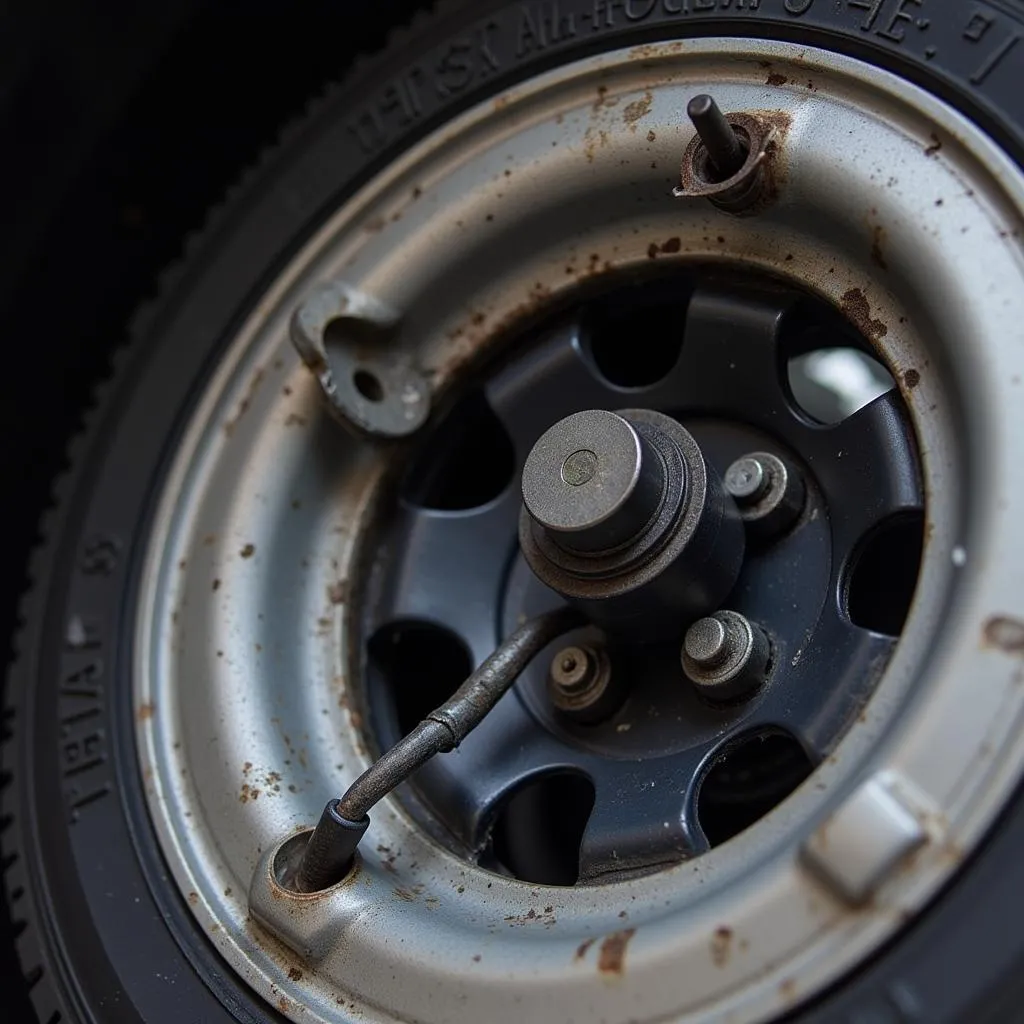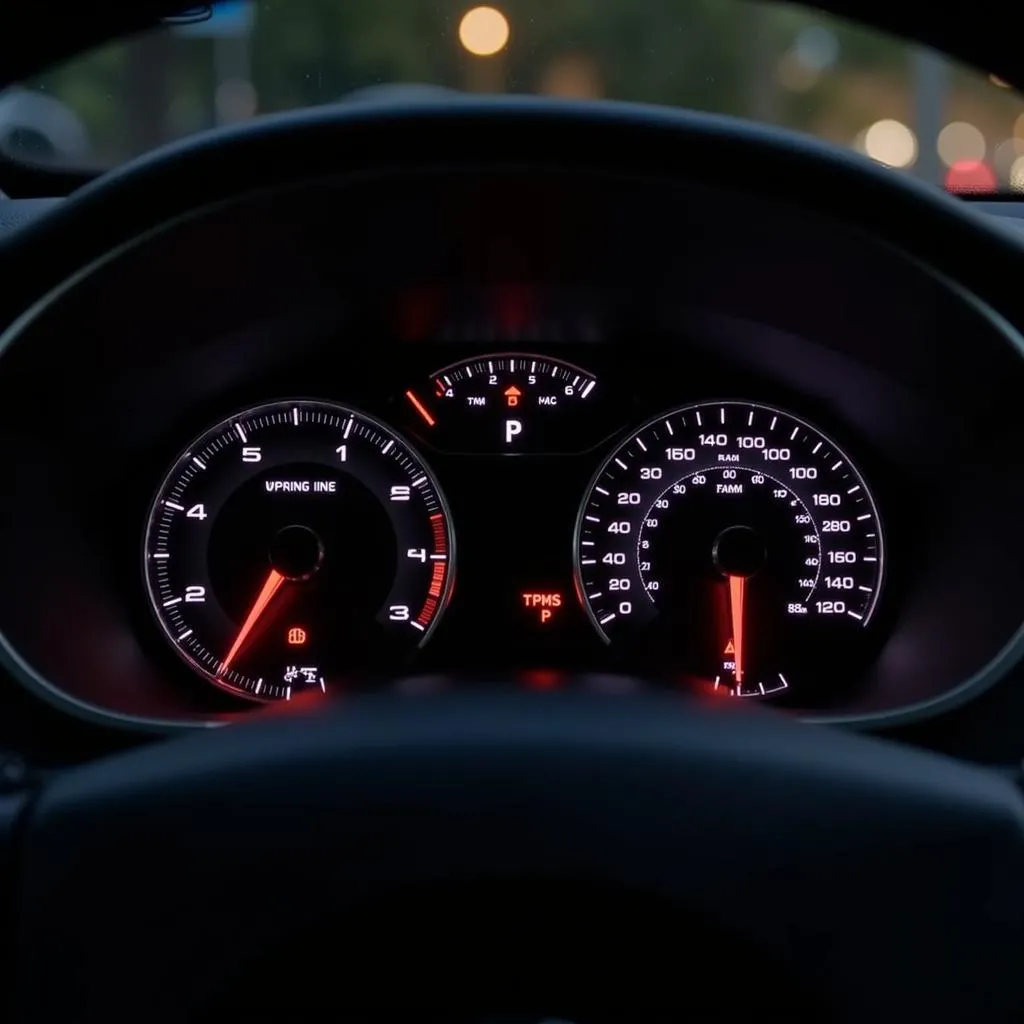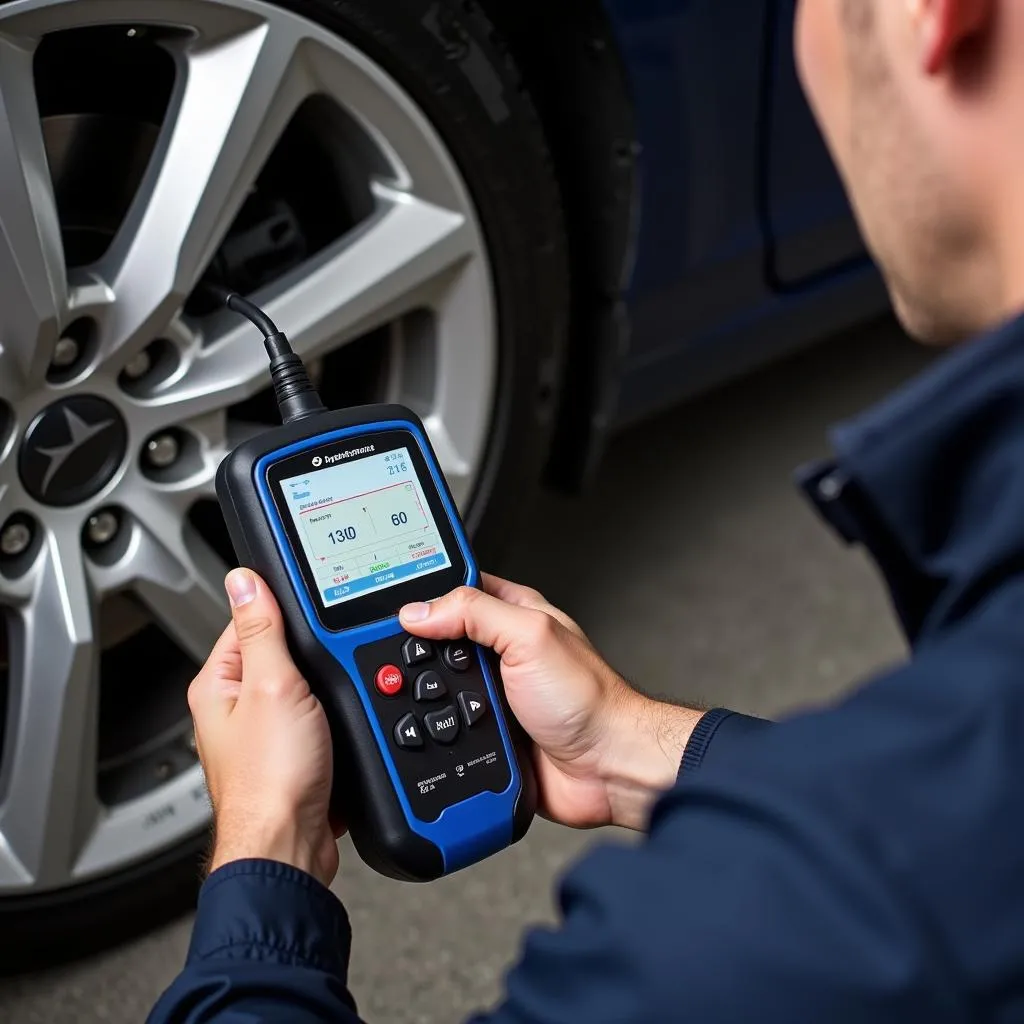The Auto Tpms Sensor, or Tire Pressure Monitoring System sensor, is a crucial component of modern vehicle safety. This small device, often located within the tire itself, constantly monitors your tire pressure and transmits the information to your vehicle’s computer.
 TPMS Sensor Inside a Tire
TPMS Sensor Inside a Tire
How Does a TPMS Sensor Work?
There are two main types of TPMS sensors: direct and indirect.
- Direct TPMS: These sensors are directly mounted inside each wheel, measuring the air pressure in real time. They provide the most accurate readings and can even differentiate between slight pressure variations.
- Indirect TPMS: This system doesn’t have physical pressure sensors inside the tires. Instead, it utilizes the wheel speed sensors (part of the ABS system) to detect changes in tire rotation speed. An underinflated tire rotates at a different rate than a properly inflated one, triggering the warning light.
Regardless of the type, the information from the TPMS is relayed to your car’s computer and displayed on your dashboard, often as a warning light or a digital reading.
Why Are Auto TPMS Sensors Important?
Having the correct tire pressure is vital for several reasons:
- Safety: Underinflated tires are a major cause of accidents. They can overheat, leading to blowouts, and also significantly reduce vehicle handling and braking performance.
- Fuel Efficiency: Driving on underinflated tires increases rolling resistance, making your engine work harder and consume more fuel.
- Tire Longevity: Incorrect tire pressure causes uneven tire wear, shortening their lifespan and requiring premature replacement.
TPMS sensors provide you with real-time data, allowing you to address tire pressure issues immediately and avoid these potential hazards.
 TPMS Warning Light on Dashboard
TPMS Warning Light on Dashboard
Common TPMS Sensor Problems
While TPMS sensors are generally reliable, they can experience issues:
- Dead Battery: TPMS sensors have internal batteries that can die, rendering the sensor inoperative.
- Sensor Damage: Physical damage from punctures, curb impact, or improper tire installation can break the sensor.
- Signal Interference: In rare cases, electromagnetic interference can disrupt the signal transmission between the sensor and the car’s computer.
- System Malfunction: Issues within the car’s computer system itself can also lead to faulty TPMS readings.
What to Do When Your TPMS Light Turns On
If your TPMS warning light illuminates, it’s crucial to:
- Check Your Tire Pressure: Find a reliable pressure gauge and check the pressure of all tires, including the spare.
- Inflate/Deflate as Needed: Adjust the tire pressure to match your vehicle’s recommended PSI (found in the owner’s manual or on a sticker inside the driver’s side door jamb).
- Reset the System: Most vehicles have a TPMS reset procedure outlined in the owner’s manual. This helps synchronize the sensors with the computer after pressure adjustments.
- Seek Professional Help: If the light persists, there might be a problem with the TPMS system itself. It’s best to consult a qualified mechanic who can diagnose and fix the issue using a professional diagnostic scanner.
 Mechanic Diagnosing TPMS with Scanner
Mechanic Diagnosing TPMS with Scanner
Maintaining Your Auto TPMS Sensors
Here are some tips to ensure your TPMS sensors remain in good condition:
- Regular Pressure Checks: Check your tire pressure at least once a month and before long trips.
- Proper Tire Installation: Make sure tires are mounted and balanced correctly by a professional.
- Use Quality Sensors: When replacing sensors, opt for high-quality, OEM-approved parts for optimal performance and longevity.
- Be Mindful of Temperature: Tire pressure fluctuates with temperature changes. Adjust your tire pressure accordingly.
Conclusion
Auto TPMS sensors are an essential safety feature in modern vehicles. By providing real-time tire pressure information, they help you maintain optimal safety, fuel efficiency, and tire lifespan. Regular maintenance and prompt attention to TPMS warnings are crucial for ensuring a safe and enjoyable driving experience.
If you are experiencing car starting issues, you might find these articles helpful: car won’t start but battery is good, lights turn on but car wont turn over. For information on diagnostic scanners, visit our top don scanner page.